#ancient drama
Text

gender crater just dropped
124 notes
·
View notes
Text
"Echoes of Tragedy: Euripides' The Trojan Women through Gilbert Murray's Lens"

In the haunting corridors of ancient Greek tragedy, Euripides' "The Trojan Women" stands as a timeless testament to the ravages of war and the indomitable strength of the human spirit. Translated with eloquence and emotional resonance by Gilbert Murray, this rendition breathes life into the poignant narrative of women grappling with the aftermath of the Trojan War.
Murray's translation is a delicate dance between preserving the essence of Euripides' verses and making them accessible to a modern audience. The language is both lyrical and evocative, capturing the profound grief, resilience, and defiance of the Trojan women as they confront the ruins of their once-mighty city. The translator's mastery lies not only in his linguistic prowess but in his ability to convey the visceral emotions embedded in the original text.
"The Trojan Women" unfolds as a lamentation, an anguished chorus of voices mourning the fates thrust upon them by the capricious whims of war. Through Murray's lens, the stark realities faced by Hecuba, Andromache, and Cassandra resonate with a rawness that transcends centuries. The translator weaves tragedy into every line, inviting readers to bear witness to the harrowing consequences of conflict.
Murray's understanding of Greek drama shines through in his meticulous attention to the nuances of each character. Hecuba's regal sorrow, Andromache's maternal grief, and Cassandra's prophetic agony are not just words on a page; they are profound expressions of the human condition. The translator's choice of language creates a symphony of voices, harmonizing the individual sorrows into a collective elegy for a fallen city.
The enduring power of "The Trojan Women" lies not only in its exploration of the consequences of war but in its ability to transcend its historical context. Gilbert Murray's translation serves as a bridge between ancient and modern, inviting readers to witness the universality of human suffering and resilience. As the final echoes of Troy's tragedy reverberate through the pages, Murray ensures that Euripides' masterpiece retains its relevance and emotional potency for generations to come.
Euripides' "The Trojan Women" Translated by Gilbert Murray is available in Amazon in paperback 10.99$ and hardcover 18.99$ editions.
Number of pages: 142
Language: English
Rating: 8/10
Link of the book!
Review By: King's Cat
#Euripides#Greek tragedy#The Trojan Women#War consequences#Ancient drama#Gilbert Murray translation#Greek mythology#Hecuba#Andromache#Cassandra#Tragic chorus#Trojan War aftermath#Lamentation#Human suffering#Resilience#Ancient literature#Emotional resonance#Poignant narrative#Grief and loss#Defiance#Classical literature#Tragic heroes#Prophetic agony#Maternal grief#Elegy for Troy#Universal themes#Historical tragedy#Timeless storytelling#Dramatic chorus#Legacy of Greek drama
3 notes
·
View notes
Text
"Euripides' 'The Medea': A Tragic Ode to Vengeance, Passion, and the Human Psyche"
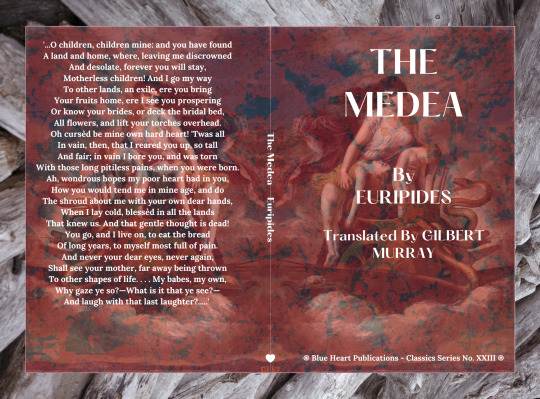
Euripides' timeless tragedy, "The Medea," translated by Gilbert Murray, stands as a testament to the enduring power of Greek drama. In this riveting narrative, Euripides plunges the audience into the tumultuous world of Medea, a woman scorned, navigating the treacherous waters of betrayal, revenge, and the primal depths of the human psyche. Gilbert Murray's translation, retaining the poetic resonance of the original Greek, brings forth the visceral intensity of Euripides' words, making this ancient play accessible and emotionally charged for modern readers.
At the heart of "The Medea" is the eponymous protagonist, a sorceress and former princess of Colchis, who finds herself in Corinth, betrayed by her husband, Jason. The title itself carries the weight of tragedy, encapsulating the essence of a woman whose name has become synonymous with vengeance and the destructive potential of unchecked passion. Murray's translation preserves the tragic grandeur of Euripides' vision, immersing readers in the emotional maelstrom that is Medea's world.
The play unfolds as a visceral exploration of the consequences of Jason's betrayal, a theme as relevant today as it was in ancient Greece. Medea's searing monologues, masterfully translated by Murray, lay bare the raw emotions of a woman scorned, grappling with the collision of love, betrayal, and a society that denies her agency. The title, "The Medea," beckons readers into a character study of a woman who defies societal norms and challenges the very fabric of morality.
Murray's translation captures the nuances of Euripides' language, allowing readers to appreciate the poetic beauty and rhetorical brilliance of the original play. The title becomes a gateway to an exploration of Greek tragedy—a genre that thrives on the exploration of fundamental human experiences, the fragility of relationships, and the consequences of unchecked passions.
One of the striking aspects of "The Medea" is the ambiguity of morality that Euripides injects into the narrative. The play challenges the audience to grapple with the complexity of Medea's character—a woman who commits unspeakable acts yet elicits sympathy for the injustices she has suffered. The title acts as a harbinger of this moral ambiguity, inviting readers to question their own ethical compass as they navigate the turbulent waters of Medea's choices.
As the tragedy unfolds, Murray's translation skillfully navigates the chorus's interludes, adding a collective voice to the unfolding drama. The title becomes a unifying thread, signaling the chorus's role in guiding the audience through the moral quandaries and emotional tumult depicted on the stage. Euripides, through Murray's translation, weaves a tapestry of collective grief, fear, and contemplation that underscores the universal themes at play.
In conclusion, "The Medea" by Euripides, translated by Gilbert Murray, is a tour de force that transcends time and cultural boundaries. The title serves as a portal into a world of tragic inevitability, where the line between heroism and villainy blurs, and the consequences of human actions reverberate through the ages. Murray's translation, with its eloquence and sensitivity, ensures that the emotional and philosophical resonance of Euripides' work remains intact, inviting readers to confront the timeless questions embedded in the human experience. "The Medea" stands as a testament to the enduring power of Greek tragedy—a genre that continues to illuminate the darkest corners of the human soul.
Euripides' timeless tragedy, "The Medea," is available in Amazon in paperback 10.99$ and hardcover 18.99$ editions.
Number of pages: 139
Language: English
Rating: 10/10
Link of the book!
Review By: King's Cat
#Euripides#The Medea#Gilbert Murray#Greek tragedy#Ancient drama#Vengeance#Passion#Human psyche#Betrayal#Emotional turmoil#Societal norms#Tragic grandeur#Jason#Love#Morality#Character study#Unspeakable acts#Ethical compass#Ambiguity#Rhetorical brilliance#Poetic beauty#Collective voice#Chorus#Unchecked passions#Fundamental human experiences#Moral quandaries#Emotional tumult#Universal themes#Heroism#Villainy
2 notes
·
View notes
Text
Truth be told, Gong Jun has to be one of the only actors who looks fit so damn perfectly in the ancient costumes. Like, don’t get me wrong, many male actors are really pretty when they are in those costumes and they can act but something about him and how well he fits into those types of clothes and hair that has me literally on a chokehold
#gong jun#word of honor#ancient drama#its been a month since i finished woh and still can get over how beautiful everyone is#also love the hair of zhou zishu#i want to see more of that hairstyle in men
4 notes
·
View notes
Text
calling all actors, singers, sound designers, and anyone otherwise interested in dramatic performance
the Committee on Ancient and Modern Performance (CAMP), a branch of the Society of Classical Studies (SCS) has opened auditions for their performance of Aristophanes's Lysistrata, to be performed at the annual meeting of the SCS and Archaeological Institute of America (AIA) in Chicago in 2024. All information about auditions can be found here.
1 note
·
View note
Text
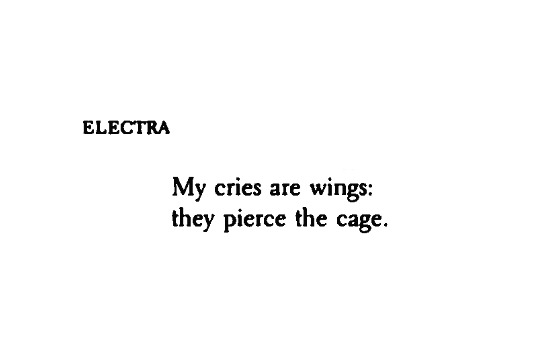
Sophocles, from "Electra: A Tragedy," translated by Anne Carson
1K notes
·
View notes
Text

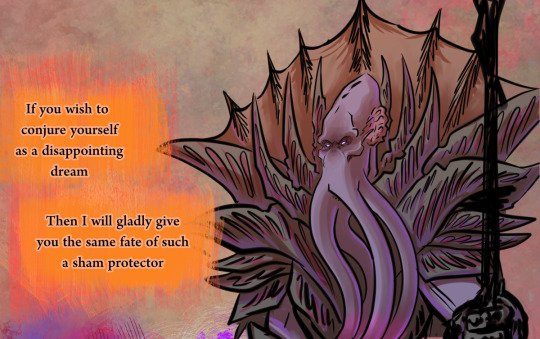



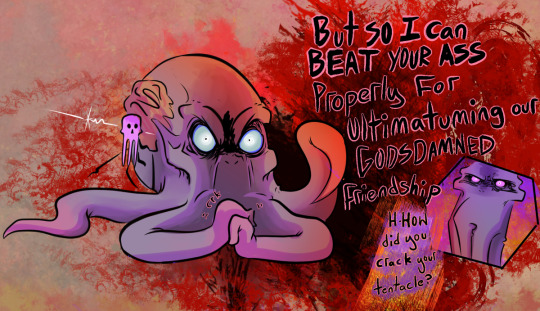


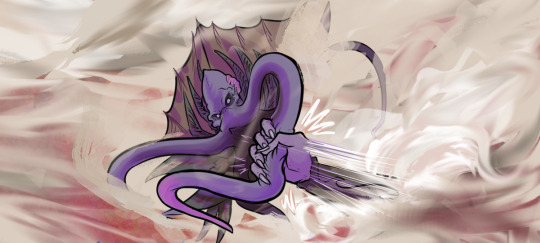
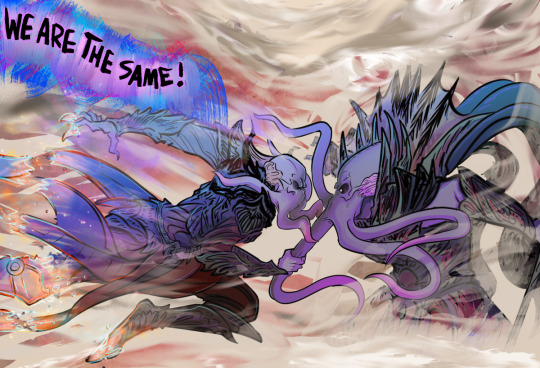
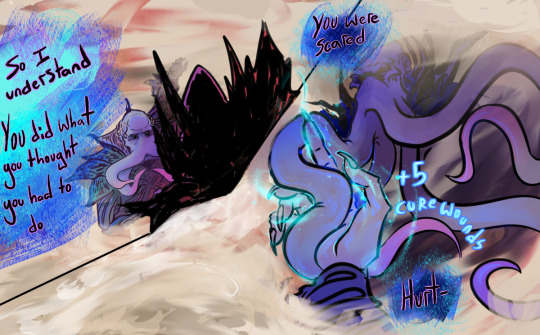






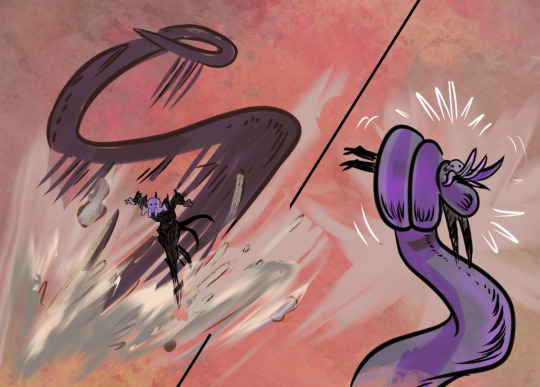

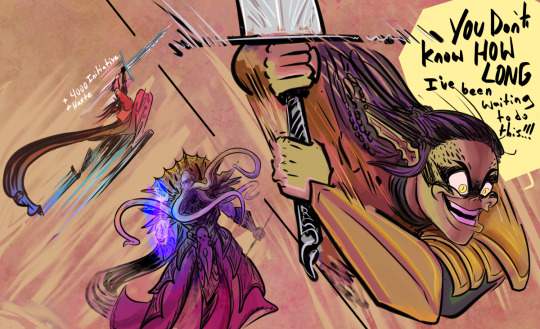
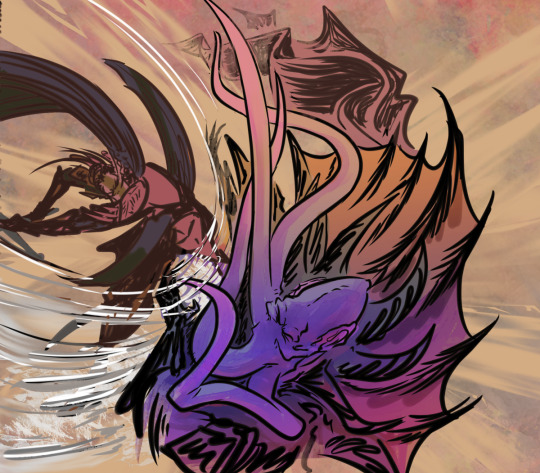


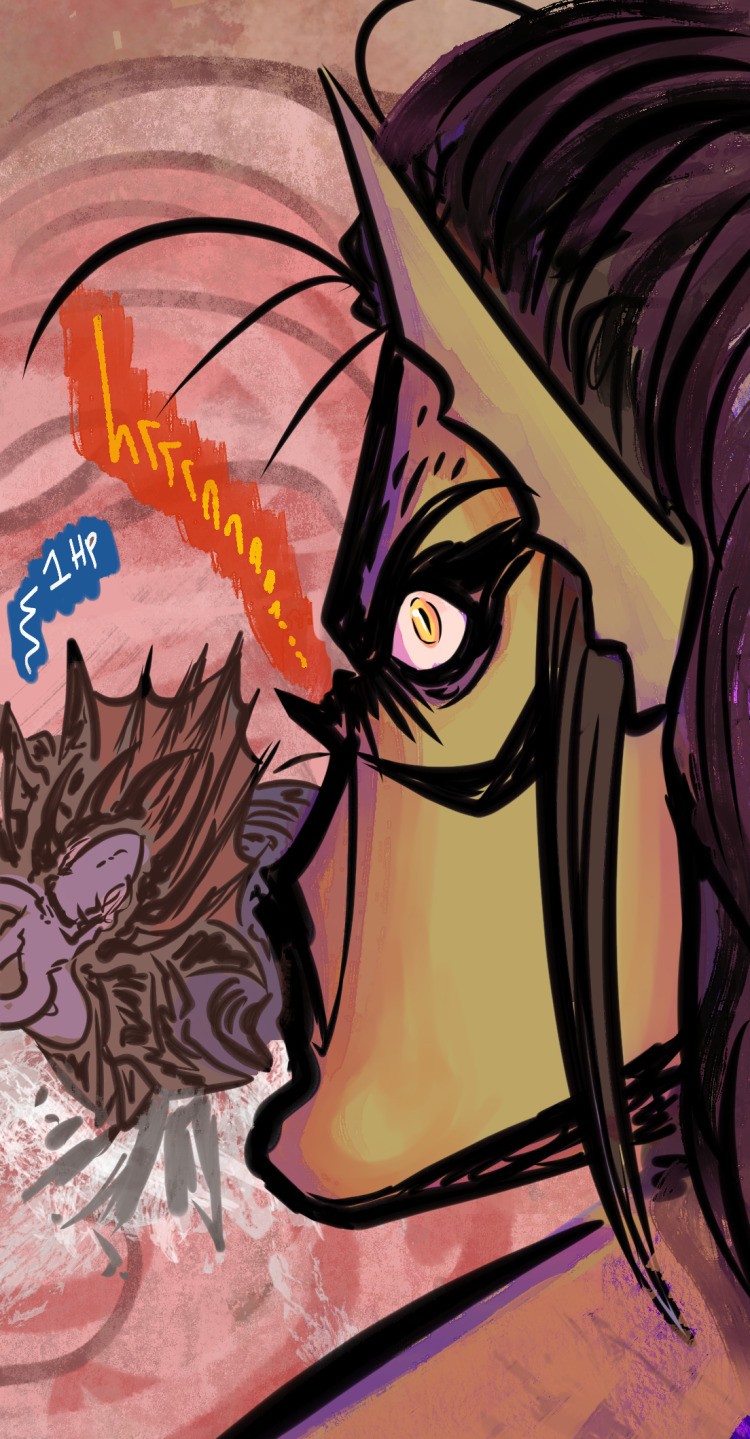
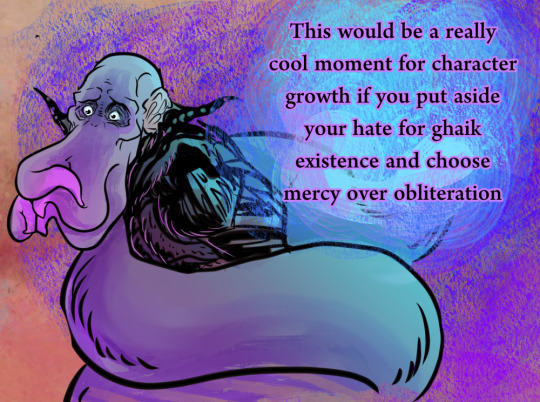
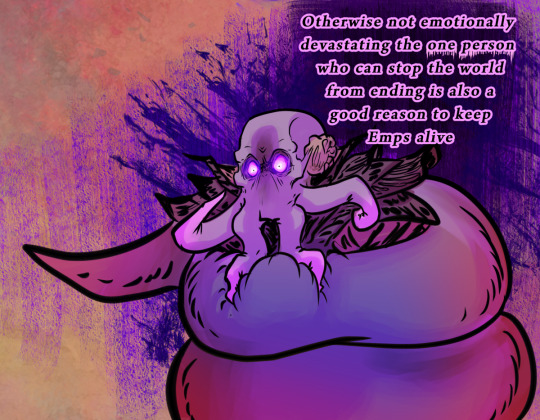
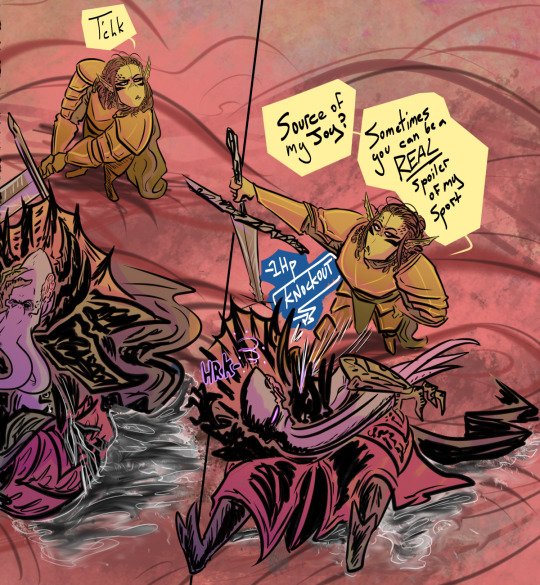
final showdown pt2.
This was one of those battles where I survived it without a single reload. So. This entire scene? Accurate. Embarrassingly Accurate. (except the healy dealy. that's Greygold flair)
Wanted to get to the crown as fast as possible, but had to fly by Emps. Literally stopped next to bud to personally yell/reassure the fool I was gonna save their ass and then risked the opportunity attack.
(which. I forgot to bring my dex 18 gloves and discovered illithidism had shit dex, so....IS FINE. GG IS ALL FOR STARTING A NEW COLLECTION OF FRIENDSHIP SCARS)
BUT SQUID BUDDY MISSED. so. I like to think Enthralled Emps had put some effort into jumping through some rather large logic hoops to miss. Unlike Greygold who put JACK effort into dodging.
I originally intended to leave Emps completely alone, risk the attacks. But. Brain tentacle surprise happened. Right next to the squid. Emps rolled high in initiative.... But not as high as Lae'zel. Game-wise, ✨I panicked✨. Story-wise? I don't think this could have been any more in-character. Albeit, I found myself quadruple checking to make sure knockout mode was ABSOLUTELY on
#bg3 spoilers#bg3#baldur's gate 3#the emperor bg3#lae'zel#illithid tav#greygold#squid greygold#Man there's so many past comic refs I don't feel like linking hope you all are keeping up hUAR#If GG had known emps would be there they would not have worn that guardian armor but they are too stubborn to admit they whoopsied#I don't remember jack in the other timeline final battle (sadly) but this fight? forever burned into my soul. good drama yo.#I will never get over how Greygold use to have the AC of an Ancient Red Dragon and now they're AC is Squid Chum SQUID CHUM#GREYGOLD'S AIM IS SQUID CHUM TOO AUGH#As much as I keep ragging on Emps I love Lae'zel to death as well. knocked that squid out in one go to protect her squid-Joy ehuehuehueh#I can only imagine that she never thought she'd have to resist killing not one but -two- mindflayers for the sake of love....Love you babe~#CHARACTER GROWTH INDEED
209 notes
·
View notes
Text
James: Sirius, who's your favorite sibling?
Sirius: well I only have the one, so it's gotta be him.
James: Regulus, who's your favorite sibling?
Regulus: Narcissa. Definitely.
#the noble and most ancient house of black#black family drama#black family#regulus black#james potter#sirius black#r.a.b.#r.a.b#regulus arcturus black#narcissa malfoy#narcissa black#narcissa & regulus#regulus & narcissa#i told y'all i wasnt done with this#marauders#marauders era#dead gay wizards
498 notes
·
View notes
Text
Every time Cale uses an ancient power and then gets confused when people react in worry I laugh and want to shake him because Cale, CALE YOU NEVER EXPLAIN WHY YOU'RE VOMITING BLOOD.
And here's the thing, vomitting blood, regardles of colour is a sign of serious internal problems, and you know what signs and symptoms you should definitely watch out for afterwards?
Dizziness, especially after standing.
Rapid, shallow breathing.
Or other signs of shock.
So everyone around him makes the very valid assumption the Cale using an ancient power = severe internal bleeding and then Cale goes and usually displays some symptoms of shock (I.E shaky limbs, dizziness, weakness in limbs) and just never explains that he's actually fine. Instead, he tries to get up and keep moving unless he's already fainted.
OF COURSE THEY'RE FREAKING OUT CALE! They think you need serious medical attention and you keep refusing to see a healer or a doctor! (Yes we know you don't want them figuring out how many powers you have and that they can't do anything anyways, but your friends don't!)
Since we don't see what the others are doing every time Cale falls into a coma as a response, I imagine that they're all frantic, trying to figure out what went wrong, how injured he is and how to get him the proper medical care. And then Cale wakes up and is just confused as to why they made it such a big deal.
Like Cale, please, for at least the first few times, they probably thought you were DYING.
#trash of the counts family#i love the misunderstandings though#they make me laugh every time and i love the drama#but at the same time i feel bad for his friends and the kids#theyre so worried!!!#tcf cale#cale henituse#ancient powers#tcf#this is why alberu is always calling him a crazy bastard#stop worrying your kids cale!#choi han#this is why i never complain about wveryone always reacting in shock when cale vomits blood#they have very good reason to worry!!#sure eventually they get used to it and they know he'll be somewhat okay#and then he goes and gets himself put into a week long coma
343 notes
·
View notes
Text

ah yes the three genders: naked, clothed, and disguised
#fascinating implication actually. that the ancient greek alignment of the female with the body#and the association of the female with mimesis may be at odds with each other#bodycostume#bassi acting like men: gender drama and nostalgia in ancient greece#this is from the summary of ch 3 she gives in the introduction#mine
153 notes
·
View notes
Text

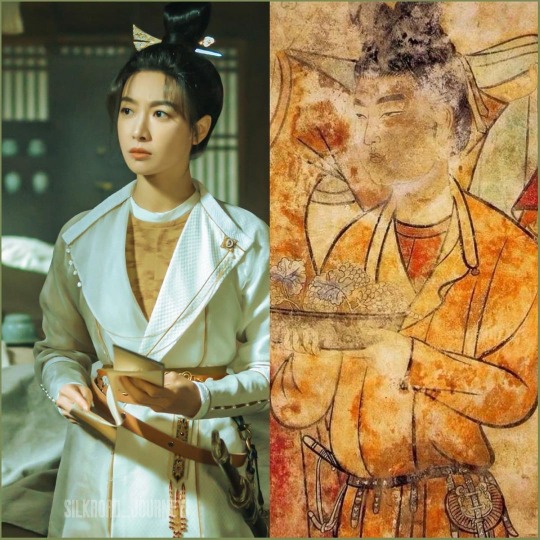


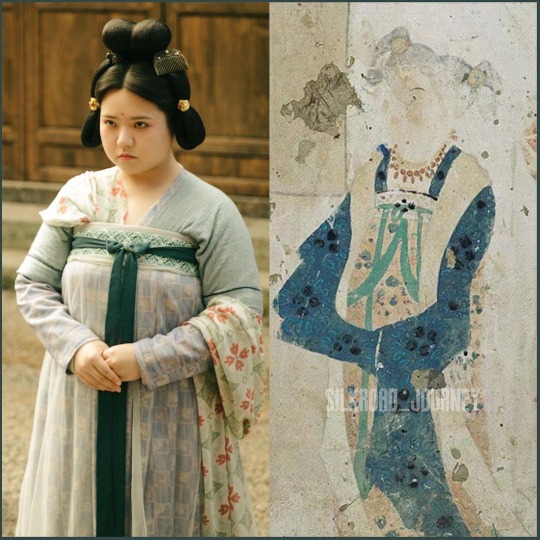

Tang dynasty period drama (Luoyang 风起洛阳) 2021
Vast majority of the C-drama costumes are restored based on real Tang dynasty paintings from the Mogao Caves. These are some examples.
Photos credit: silkroad_journey on Instagram.
#chinese history#chinese culture#hanfu#tang dynasty#Buddhism#mogao caves#China#silk road#ancient china#Medieval China#chinese drama#cdrama#hanfu recreation#Hanfu restoration#dynastic china#art
225 notes
·
View notes
Text
"The Timeless Power of Tragedy: A Review of Prometheus Bound and The Seven Against Thebes by Aeschylus"

In the annals of ancient Greek drama, Aeschylus stands as a towering figure, and his works "Prometheus Bound" and "The Seven Against Thebes" exemplify the enduring power and complexity of Greek tragedy. Translated by Theodore Alois Buckley, these timeless masterpieces continue to captivate audiences with their exploration of timeless themes such as fate, justice, and the struggle between gods and mortals.
"Prometheus Bound" opens with the titular character, Prometheus, chained to a rock as punishment for defying Zeus by giving fire to humanity. Buckley's translation vividly captures the agony and defiance of Prometheus as he suffers at the hands of the vengeful gods. Through Prometheus's steadfast resolve and defiance, Aeschylus raises profound questions about the nature of authority, rebellion, and the price of knowledge. The translation preserves the poetic richness and rhetorical power of Aeschylus's language, allowing readers to immerse themselves in the timeless drama of Prometheus's plight.
In contrast, "The Seven Against Thebes" unfolds against the backdrop of the legendary conflict between two brothers, Eteocles and Polynices, for control of the city of Thebes. Buckley's translation masterfully conveys the intensity and urgency of the unfolding tragedy as the two brothers lead their respective armies into battle. Through vivid imagery and stirring dialogue, Aeschylus explores themes of fate, destiny, and the inexorable cycle of violence that plagues humanity. The translation retains the rhythmic cadence and dramatic tension of the original Greek, ensuring that readers are swept up in the epic sweep of the narrative.
What makes Aeschylus's tragedies truly timeless is their ability to transcend the boundaries of time and culture, speaking to universal truths about the human condition. In both "Prometheus Bound" and "The Seven Against Thebes," Aeschylus grapples with questions of morality, justice, and the nature of divine power, offering profound insights into the complexities of the human experience. Buckley's translation admirably captures the depth and nuance of Aeschylus's vision, allowing contemporary readers to appreciate the enduring relevance of these ancient works.
In conclusion, "Prometheus Bound" and "The Seven Against Thebes" stand as enduring monuments to the power of Greek tragedy, and Theodore Alois Buckley's translation ensures that these timeless masterpieces continue to resonate with readers today. Through their exploration of timeless themes and profound insights into the human condition, Aeschylus's tragedies remind us of the enduring power of storytelling to illuminate the darkest corners of the human soul.
"Prometheus Bound" and "The Seven Against Thebes" by Aeschylus is available in Amazon in paperback 10.99$ and hardcover 18.99$ editions.
Number of pages: 138
Language: English
Rating: 10/10
Link of the book!
Review By: King's Cat
#Prometheus Bound#The Seven Against Thebes#Aeschylus#Greek Tragedy#Ancient Drama#Mythology#Mythological Characters#Gods and Mortals#Fate#Destiny#Justice#Rebellion#Defiance#Punishment#Consequences#Humanity#Morality#Ethical Dilemmas#Power Struggles#Conflict#War#Epic Tragedy#Hubris#Divine Retribution#Family Feuds#Sibling Rivalry#Thebes#Chorus#Dramatic Irony#Rhetorical Devices
0 notes
Text
"Euripides' Electra: A Timeless Tragedy of Vengeance and Redemption"
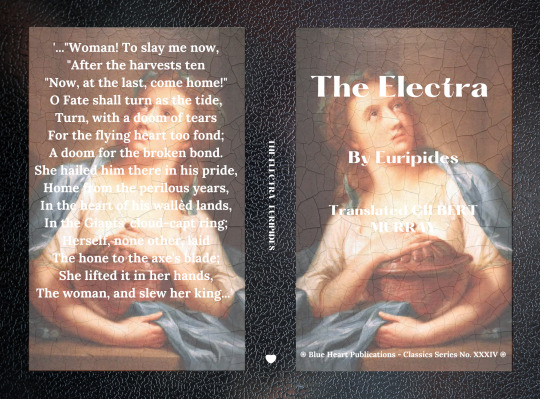
In Gilbert Murray's evocative translation of Euripides' timeless Greek tragedy, "Electra," the spirit of ancient drama is vividly brought to life. Set against the backdrop of familial betrayal and revenge, Murray's translation captures the essence of the original work, allowing contemporary readers to delve into the emotional depths of a classic tale.
The play unfolds with Electra, daughter of King Agamemnon, harboring a deep-seated resentment for her mother, Clytemnestra, and her stepfather, Aegisthus, who conspired to murder her father upon his return from the Trojan War. The narrative is woven with themes of justice, retribution, and the intricate complexities of human relationships.
Murray's translation strikes a delicate balance, preserving the poetic beauty of Euripides' language while making it accessible to a modern audience. The dialogue crackles with intensity as characters grapple with the moral consequences of their actions. Electra's grief and seething anger resonate powerfully, making her a compelling protagonist navigating the treacherous waters of vengeance.
The dramatic tension builds steadily, culminating in a gripping climax that explores the consequences of relentless pursuit of justice. Murray's translation masterfully captures the psychological nuances of the characters, inviting readers to empathize with their struggles and dilemmas.
"Euripides' Electra" remains relevant across centuries, offering a profound exploration of human nature, morality, and the enduring quest for justice. Gilbert Murray's translation ensures that the play's emotional depth and intellectual richness are not lost in translation, making it a compelling read for both scholars and those new to classical Greek literature.
"Electra," of Euripides skillfully translated by Gilbert Murray is available in Amazon in paperback 10.99$ and hardcover 18.99$ editions.
Number of pages: 132
Language: English
Rating: 9/10
Link of the book!
Review By: King's Cat
#Euripides#Electra#Greek tragedy#Gilbert Murray#Ancient drama#Revenge#Justice#Clytemnestra#Aegisthus#Trojan War#Family betrayal#Moral consequences#Vengeance#Human relationships#Psychological nuances#Emotional depth#Classic literature#Greek mythology#Tragic hero#Dramatic tension#Morality#Intensity#Treacherous waters#Grief#Retribution#Consequences#Protagonist#Timeless themes#Intellectual richness#Classic Greek play
2 notes
·
View notes
Text
me: oh, what a cool new BL drama, wonder how old actors are-
the actors:






me: A cHiLd????? spawned AFTER 2000???? sMOKIN? DRINKIN? WHY ARE YOU DRIVING A VEHICLE- WHERE'S THE BOOSTER SEAT- why do you have a whole gUN
#i feel like a decade more ancient whenever i see this#like what do you MEAN SOMEONE BORN AFTER 2000 PLAYS A MAFIA BODYGUARD#bldrama#thai drama#thai bl#bl drama#bl series
219 notes
·
View notes
Text

THE protagonist of all time
#amelias art#kusuriya no hitorigoto#the apothecary diaries#apothecary diaries#maomao#medical drama in ancient china HELLO?#and listen. im not a huge romance guy but the jinmao dynamic is so funny#jinshi voice: my beautiful princess with a disorder talk to me#maomao voice: im going to sell his pheromones#anyway hi. trying to remember how to draw lol
165 notes
·
View notes
Text










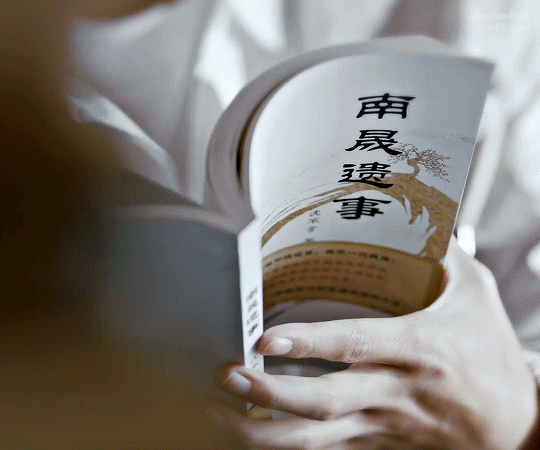

An Ancient Love Song 古相思曲 (2023)
Dir. Zhi Zhu
#an ancient love song#zhang ya qin#guo jia nan#cdrama#cdramaedit#userdramas#asiandramanet#useryd#lextag#roserayne#userkimchi#my gifs#*#perioddramaedit#period drama#periodedit#weloveperioddrama#cdramasource
157 notes
·
View notes